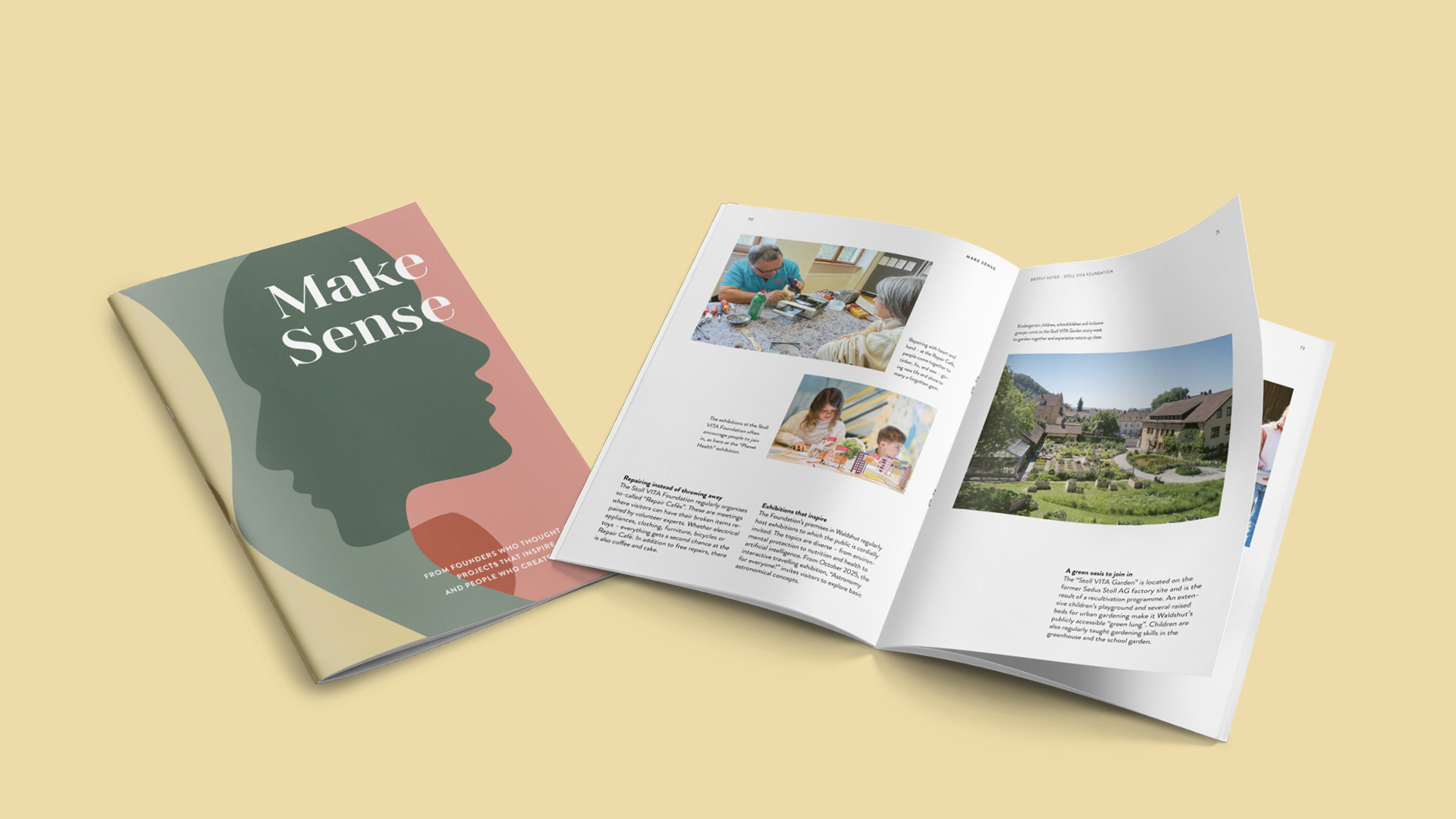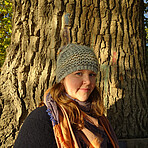This is where the non-profit organisation “Pro Uganda e. V.” comes in: Since it was founded in 2013, the aim has been to give amputees in Uganda a new quality of life through a prosthesis and to enable children to walk again by customising orthoses. The work of the organisation leads people on a path out of isolation and back into social normality.
The Karl Bröcker Foundation provides financial support to Pro Uganda e. V. in supplying orthoses to children and young people. It firmly believes that children deserve to run, play, and enjoy a carefree childhood with their peers.
In this interview with Karsten Schulz, founder and chairman of Pro Uganda e. V., we gain deeper insights into the organisation’s work and learn how even relatively simple measures can make a valuable contribution to inclusion.
Orthopaedic technology is needed all over the world. Why does your association focus specifically on Uganda?
I have sponsored children with various aid organisations in Uganda and was invited to visit them. On site, I got to know the situation of people with disabilities personally – that moved me deeply. There are projects in Uganda where schools are being built and wells drilled. But for people with disabilities, hardly anything was being done. They are often excluded and pushed to the margins of society, as no one wants to associate with them. This fate made me very sad – that is why I founded Pro Uganda e.V. in 2013.
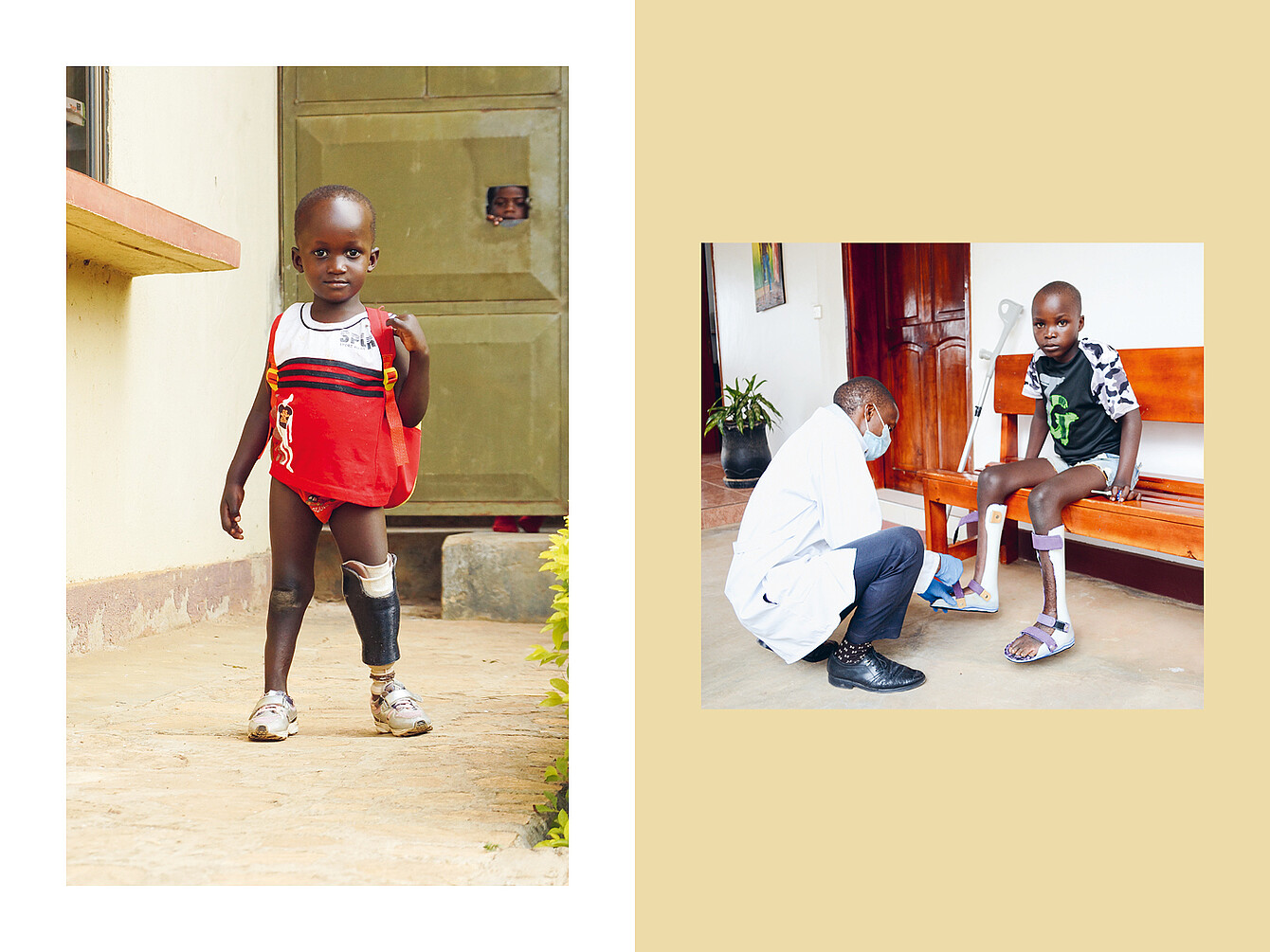
Thanks to the work of Pro Uganda e. V., Ivan received his first prosthesis, enabling him to walk and go to school again.
An orthosis is a medical device that influences the structural and functional properties of the neuromuscular and skeletal system. The team at Pro Uganda e. V. customises each orthosis to the needs of the young patients.
There are many reasons for the high amputation rate in developing countries like Uganda. What are the most common causes?
One of the main causes of amputations are accidents involving small mopeds – also known as “boda boda”. After these accidents, there is often a lack of proper medical care, which leads to infections. Diabetes has also become a real problem.
Unfortunately, patients often have no money to undergo treatment or surgery. So, instead of performing costly and complex operations, amputation is usually carried out immediately. After such a serious operation, patients have to leave the hospital after just three days, which makes appropriate wound care very difficult.
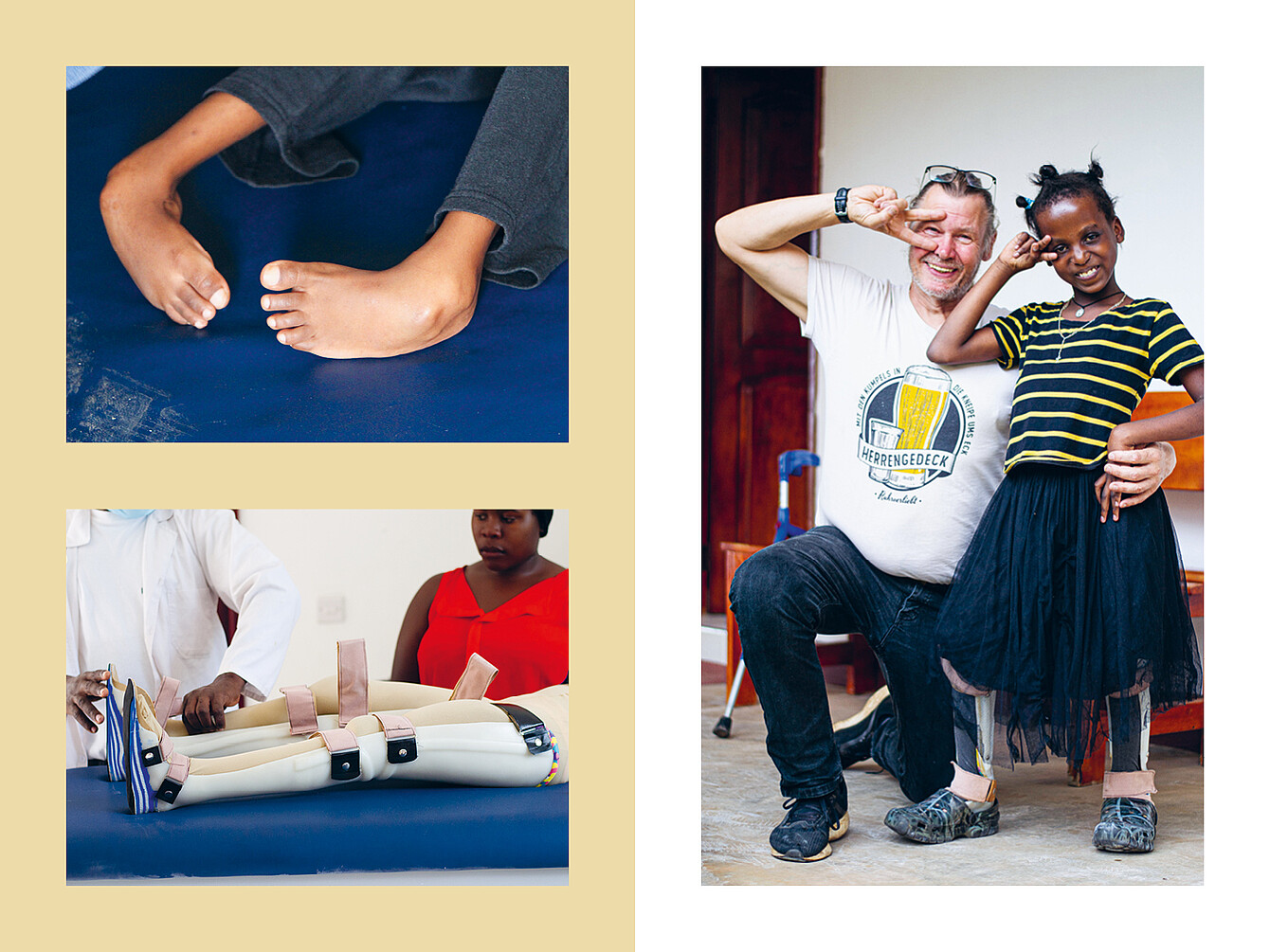
Foot deformities are a common problem in Uganda.
If they are not corrected in time with orthoses, the deformities can lead to people no longer being able to walk in the long term.
Support with orthoses enables young patients to take an active part in life again and go to school.
Children with physical disabilities in Uganda rarely have access to prostheses and orthoses. The costs are high and usually unaffordable for families. How does your organisation help locally?
Children with physical disabilities are particularly close to our hearts. They are innocent and are not responsible for their handicap. We use the donations we collect to finance operations and corrections. We build customised prostheses and orthoses for them. In 2017, we opened our own orthopaedic workshop in Uganda, where we can ensure patient care with modern resources and machines. Since opening, we have already been able to help many young patients locally. With new limbs or the support of an orthosis, they can take part in life again, play and go to school.
One case that has stuck with me to this day is a young boy who was overjoyed to be able to walk again – because he could now carry his food tray on his own, just like his friends. His face lit up with pride when he carried it by himself for the first time. For us, carrying a tray is normal – an action that happens incidentally, completely automatically. For him, it was an incredibly important step in regaining his independence.
The Karl Bröcker Foundation has supported Pro Uganda e. V. financially in providing children and young people with orthoses. What measures were you able to finance with the money?
With the donation from the Karl Bröcker Foundation, we were able to build orthoses for up to 100 children. Some of these children were first operated on using money from our medical fund. Among other things, they suffered from what is known as clubfoot. If the development of the foot is not corrected early on, they might no longer be able to walk in adulthood. This is why early orthopaedic treatment is so vital. For this financial support, we say from the bottom of our hearts: “Thank you!”.
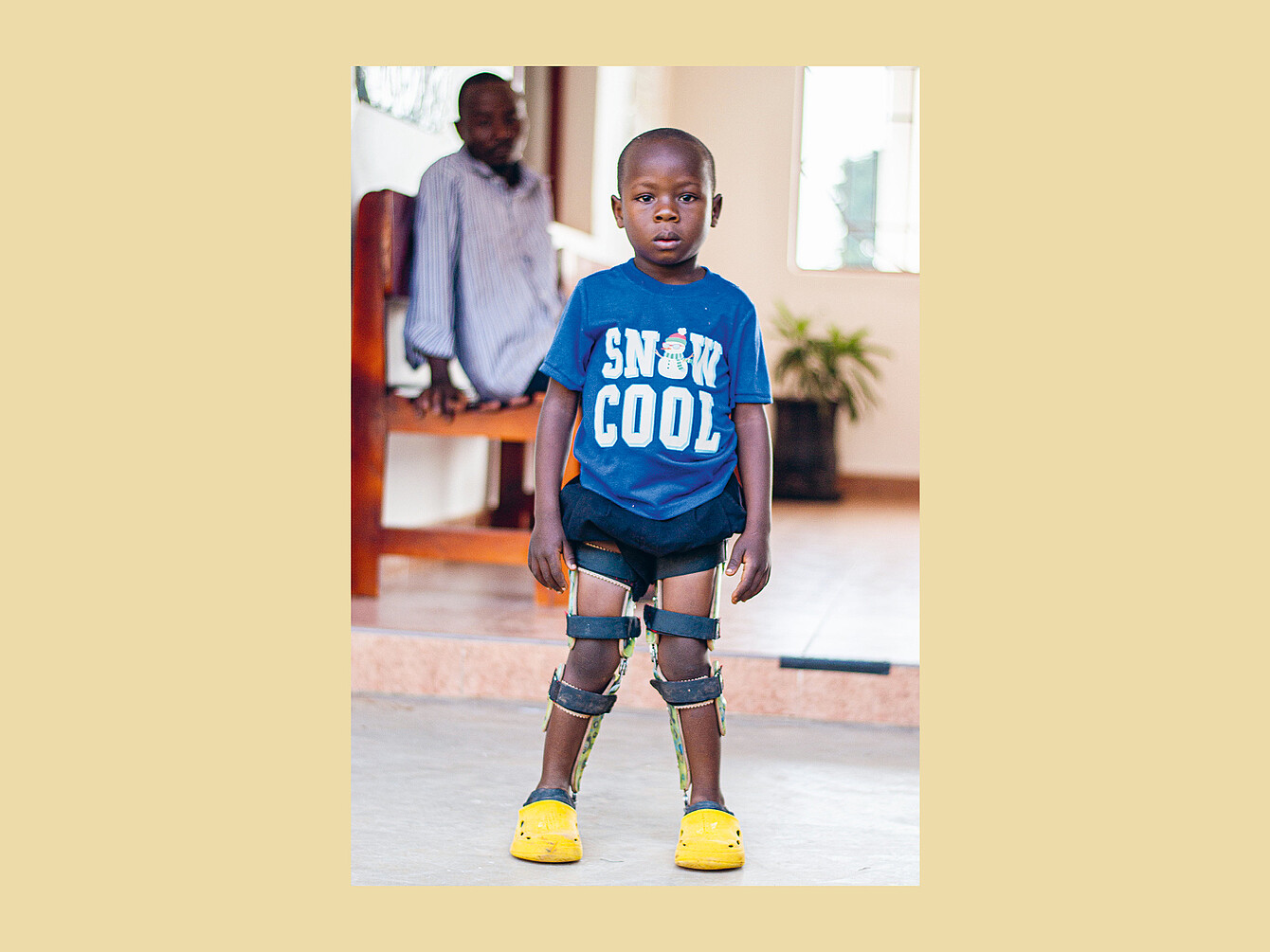
And a personal question to close: Is there an experience or a story that has made a lasting impression on you and motivates you to continue with your work every day?
Yes, there was an experience that changed my perspective permanently. In the beginning, we were building prosthetics in the bush, straight out of a suitcase. Our first patient, Stella, was pushed into a fire and her lower leg was burnt. We built her a standing prosthetic – designed only for standing. But she started walking with it. That experience motivated all of us.
In the end, Stella still had to have an amputation. Despite her limitations, she completed vocational training and now runs her own hairdressing salon in eastern Uganda.
Even today, after more than ten years, every visit to Uganda is of great importance. Seeing what is achieved locally through all the work done in Germany – watching people leave the workshop with a prosthesis, seeing children with prosthetics or orthoses playing football in the courtyard – those are the happiest moments imaginable. That is when we know what we are doing it all for.
Do you want to find out more about the project?
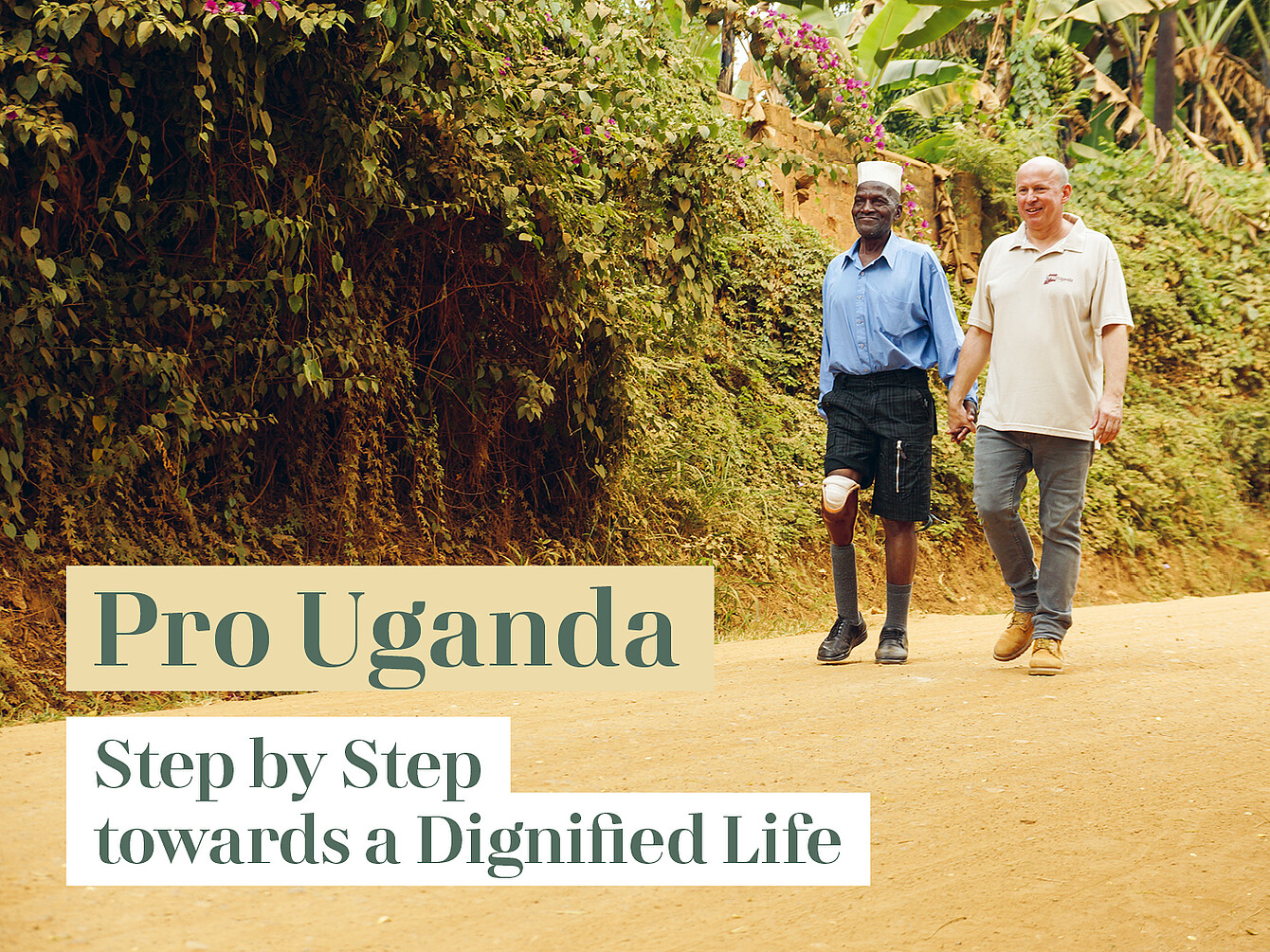
Sulaimani heard about the Pro Uganda organisation from friends in 2015. He introduced himself to the team and received a new prosthesis from Karsten Schulz, founder of Pro Uganda e. V., during Easter 2016. At that time, the team was still working on a mobile basis and built the prostheses on site. They only had a suitcase for tools and materials.
social media channels:
